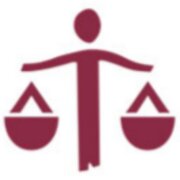Best Faith-Based Law Lawyers in Cape Town
Share your needs with us, get contacted by law firms.
Free. Takes 2 min.
List of the best lawyers in Cape Town, South Africa
About Faith-Based Law in Cape Town, South Africa
Faith-Based Law in Cape Town, South Africa, encompasses a range of legal issues that intersect with religious beliefs and practices. This area of law can involve the representation of religious organizations, guidance on religious freedoms, and assistance with disputes that arise within the context of faith communities. In a diverse city like Cape Town, where multiple religions coexist, Faith-Based Law seeks to ensure that religious practices are respected within the framework of South African legal standards.
Why You May Need a Lawyer
There are several scenarios in which individuals or organizations might require legal assistance in Faith-Based Law:
- Disputes over religious inheritance and succession issues.
- Legal guidance on establishing faith-based organizations or charities.
- Conflicts involving religious employment contracts or misconduct within religious institutions.
- Issues around the protection of religious freedoms and practices.
- Advisory on compliance with national laws affecting religious organizations.
Engaging a lawyer specialized in Faith-Based Law can help navigate these complex intersections between law and religious practices.
Local Laws Overview
South African law recognizes freedom of religion under Section 15 of the Constitution, which is significant for faith-based matters. The country's legal system allows for the coexistence of different religious norms, provided they align with constitutional values. Cape Town, known for its cultural and religious diversity, adheres to national laws ensuring religious freedoms while maintaining public order. Other laws such as the Promotion of Equality and Prevention of Unfair Discrimination Act (PEPUDA) are also critical, providing a legal framework against discrimination, including on religious grounds.
Frequently Asked Questions
1. What is Faith-Based Law?
Faith-Based Law involves legal issues that arise from religious practices and beliefs, requiring a balance between religious freedoms and national legal standards.
2. Is it difficult to set up a religious organization in Cape Town?
Establishing a religious organization involves certain procedural steps such as registration, compliance with charitable status regulations, and ensuring activities are in line with national and municipal laws.
3. Can religious practices override national laws?
While religious freedoms are protected, they cannot override national laws, especially those concerning human rights and equality.
4. How does employment law apply to religious institutions?
Employment laws apply to religious institutions, although certain exemptions and considerations may be made to respect religious doctrines, particularly in roles that require adherence to faith tenets.
5. What legal protections do religious individuals and groups have?
Religious individuals and groups have their rights protected under the Constitution, ensuring freedom of religion, belief, and opinion.
6. Are there legal remedies for religious discrimination?
Yes, religious discrimination is prohibited under South African law and individuals can seek legal recourse through entities like the Equality Court.
7. How are religious disputes typically resolved?
Many religious disputes are resolved through mediation or arbitration within the community, but legal intervention can occur if these methods fail.
8. What is the role of faith-based legal practitioners?
Faith-based legal practitioners provide specialized advice and representation in cases where religious issues intersect with legal obligations.
9. Can family law issues be handled under Faith-Based Law?
Certain family law issues, like marriage and divorce, may be addressed within religious contexts but must comply with national laws such as the Marriage Act.
10. How can one ensure their faith-based activities comply with local laws?
Consulting with a legal expert in Faith-Based Law is crucial to ensure compliance with legislative requirements while respecting religious doctrines.
Additional Resources
The following resources may be beneficial for individuals seeking further information or help:
- The South African Commission for the Promotion and Protection of the Rights of Cultural, Religious, and Linguistic Communities
- Religious organizations and councils specific to faith traditions
- Local legal aid centers or faith-based legal clinics
- The Western Cape Religious Leaders Forum for inter-religious dialogue and support
Next Steps
If you require legal assistance in Faith-Based Law, it is advisable to:
- Identify your specific legal issue and gather all relevant documentation related to your case.
- Consult with an attorney who specializes in Faith-Based Law to discuss your situation and seek guidance.
- Explore alternative dispute resolution methods such as mediation within your religious community, if applicable.
- Contact local legal aid services if financial constraints are a concern, to explore available options for representation.
- Stay informed about relevant local and national laws by attending workshops or consultations offered by legal practitioners.
Engaging with a skilled lawyer will ensure that your religious and legal rights are fully understood and respected, providing you with the best course of action for your individual circumstances.
Lawzana helps you find the best lawyers and law firms in Cape Town through a curated and pre-screened list of qualified legal professionals. Our platform offers rankings and detailed profiles of attorneys and law firms, allowing you to compare based on practice areas, including Faith-Based Law, experience, and client feedback.
Each profile includes a description of the firm's areas of practice, client reviews, team members and partners, year of establishment, spoken languages, office locations, contact information, social media presence, and any published articles or resources. Most firms on our platform speak English and are experienced in both local and international legal matters.
Get a quote from top-rated law firms in Cape Town, South Africa — quickly, securely, and without unnecessary hassle.
Disclaimer:
The information provided on this page is for general informational purposes only and does not constitute legal advice. While we strive to ensure the accuracy and relevance of the content, legal information may change over time, and interpretations of the law can vary. You should always consult with a qualified legal professional for advice specific to your situation.
We disclaim all liability for actions taken or not taken based on the content of this page. If you believe any information is incorrect or outdated, please contact us, and we will review and update it where appropriate.













